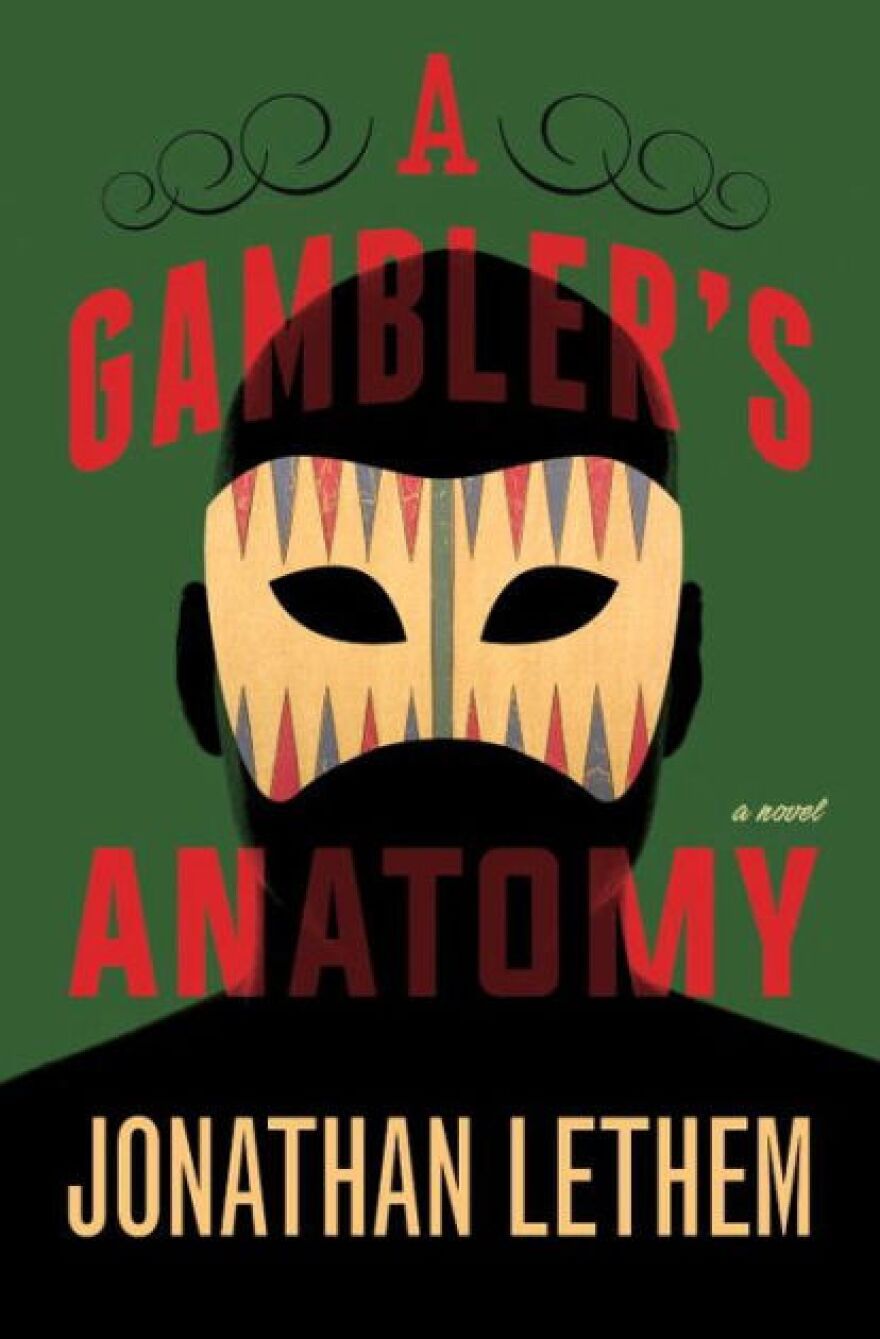Even if you’re not familiar with Jonathan Lethem’s work, you might know his name, because he was, in 2005, a recipient of a MacArthur “Genius” grant.
Lethem’s work tends to range from pure science fiction to social realism — his latest is somewhere in between.
In “A Gambler’s Anatomy”, he tells the story of Alexander Bruno, an international backgammon hustler who finds himself pulled back to his childhood home of Berkeley, California, when a horrifying health condition threatens his life.
It’s a dark, and sometimes gory, story of identity, intimacy and place.
Nora Flaherty spoke with Jonathan Lethem — a part-year resident of the coastal village of Blue Hill — about the new book, genre writing and his relationship with Maine.
Lethem: I’ve always loved gambling stories in general, things like “The Hustler,” and there’s a kind of French film noir, a crime film called “Bob le Flambeur,” that was a big source for this.
I just always feel there’s something about the miniature universe of games and gambling that’s very expressive of the human condition, and I always wanted to write one of my own, but the impulse didn’t attach to anything until I realized that a kid I’d grown up with was living in southeast Asia as a backgammon hustler for a while, and just the kind of preposterousness of this hit home for me, and I started fantasizing about a character who was from a place more like where I was from, and had projected himself into another kind of reality, and the story started to come together for me.
Flaherty: Your books generally have a fairly strong sense of place, but that’s something the character Bruno here strives to avoid feeling.
Lethem: Yeah, he’s kind of a reverse of a character like I’ve written before, who’s so defined or entrenched in their neighborhood or city or the settings of their coming of age, that they can’t pull loose of them. Bruno’s done the reverse, he’s tried to forget where he’s from, and he floats, he likes to move into a new environment and have his feet never touch the ground. So if he’s in Singapore, or London, or Berlin, his only real concern is, is there a good restaurant nearby, and how quickly can I get to the airport and move on. He’s an escape artist.

Flaherty: A lot of the tension in this book happens when he’s forced to confront the place that’s meaningful to him.
Lethem: Yes, I guess my belief that origins are terrifically important is sort of demonstrated in reverse in him; he’s someone who doesn’t have any interest in that kind of self-knowledge, and yet it seems to sort of reach out and come and get him.
Flaherty: You tend to write in a few different genres — where does this fit in?
Lethem: Well, 10 books in, 30 years into doing this, I’ve stopped really thinking there’s a system or an overall plot to my activities. It’s more a matter of what does this book want to be, how do I want to make this work. And I do think this one’s quite different from what I’ve done before.
In certain quiet ways, I see this book as kind of a horror novel. It’s really about a descent — it’s really a “Twilight Zone” story, or a nightmare that you’d find in Edgar Allan Poe or Ambrose Bierce, about a character who in some ways has one foot in the real world, and one foot kind of in a version of the underworld or in a version of the afterlife.
The main thing I wanted to do with this book was write a really gripping tale. I felt that the elements compelled me in a sort of uncanny way, and if I put them together right, I could possibly write a book that was impossible to put down. I wanted it to be a page turner.
Flaherty: Part of the reason we’re talking is because, along with several other well-known writers, you’re a part-year resident of Blue Hill. How does spending a lot of time in a pretty non-urban place, on coastal Maine, affect what you do?
Lethem: Growing up in New York City, I already had a relationship to the idea of New England, and I used to go to southern Maine as a kid, to Berwick. My dad had some painting buddies there, part of that old Ogunquit-Berwick painters colony.
And it’s very typical if you’re from a city to have this image of Vermont or upstate New York or coastal Maine as a kind of idyllic counterpoint to where you’re from. My mother was a Fresh Air Fund kid, actually — she used to go to Vermont.
I’d already written these kinds of pastoral New England villages into a couple of stories — it’s there in “The Fortress of Solitude,” and in “Motherless Brooklyn” the character escapes the city and goes up to the coast of Maine for a while. It’s always meant a lot to me. And when I was lucky enough to be able to start spending time in Blue Hill, and made friends there with other periodic visitors, and also with year-round people, I began to feel like it was part of my life, and really that I was part of that community.
So really, it’s become more than I can express simply, it has become part of my soul and my identity. Now, 10 years in, it expresses for me anyway part of who I am, even if I’m not obviously identified with the Maine coast in my writing — I tend to still write about cosmopolitan characters and urban stuff.


